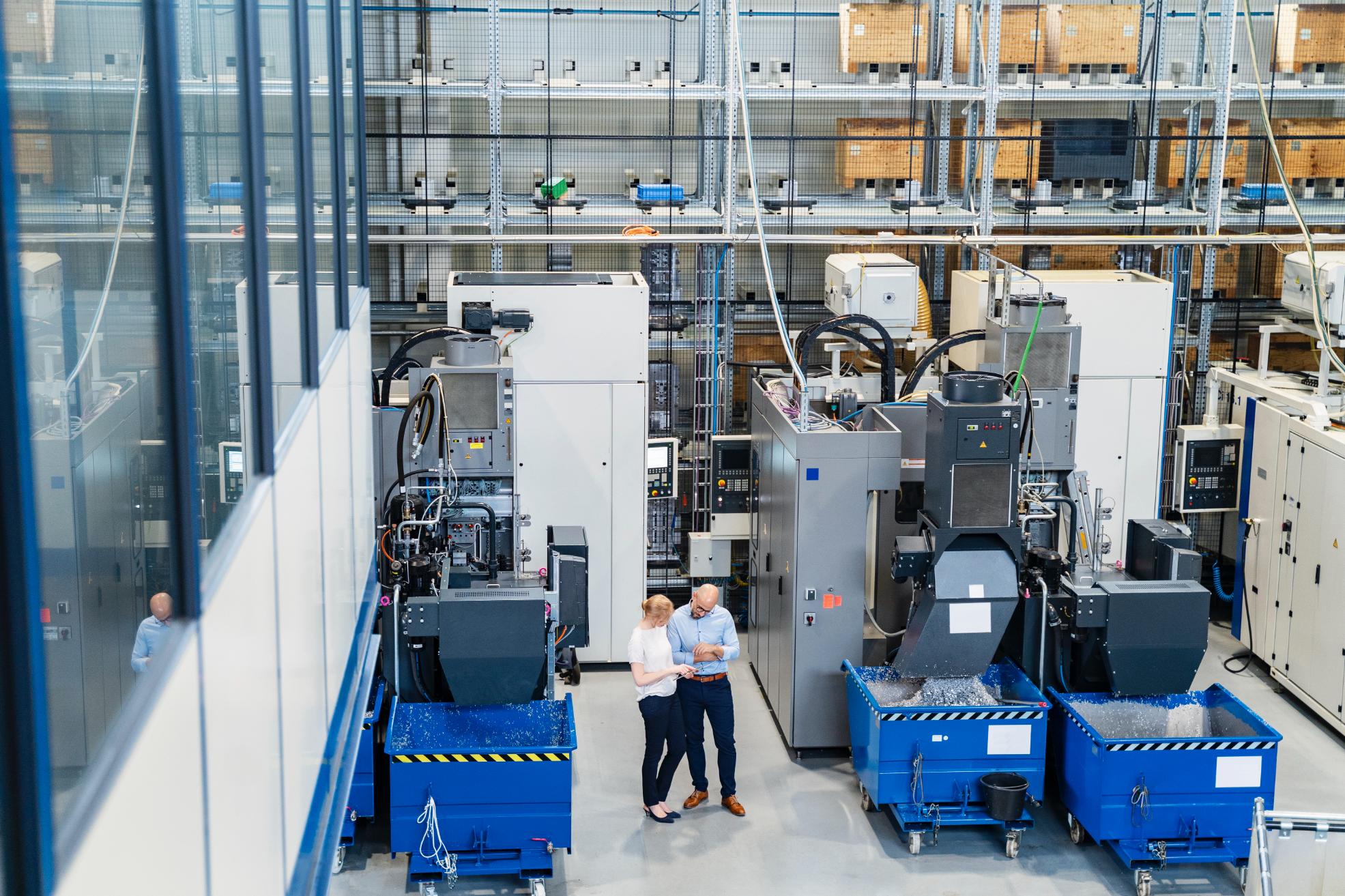Every manufacturer claims precision, quality, and reliability—but if everyone’s saying the same thing, nobody’s truly standing out. It’s time to move beyond surface-level promises and tap into deeper emotional and practical drivers that make your customers feel seen, understood, and genuinely excited about working with you.
The Precision Paradox for Manufacturing Companies
While precision is a cornerstone claim in manufacturing brand positioning, it is highly overused. When every competitor touts precision, quality, and reliability, those same terms quickly lose meaning. If everyone claims superiority, no one truly stands out. It’s like a blueberry farmer using the fact that his blueberries are blue and fresh as the reason to buy his fruit. Those are table stakes. Everyone buying blueberries expects them to be blue and fresh.
Why Claims Like Quality and Reliability Fall Short
Farming and manufacturing are similar in that many products are either the same or have similar expectations from customers. Veggies need to be the color and taste people expect; manufactured products need to be the size and quality people expect. To fully differentiate from competitors, it is vital that manufacturing companies look deeper than what is expected. By uncovering genuine differentiation that connects emotionally and practically with customers, a brand can find uniqueness in a sea of similarity.
What Real Differentiation Actually Means
Real differentiation means being meaningfully different—not just in product features but in how you deliver value, build relationships, and solve customer problems. Take, for instance, Caterpillar. While known for durable, high-quality equipment, their true differentiation lies in their unmatched dealer network and legendary after-sales service, as highlighted by the Harvard Business Review.
Caterpillar’s Strategy: Competing Through Relationships
There was significant competition through the ’80s and early ’90s from Japanese manufacturers such as Komatsu, Hitachi, and others. Caterpillar needed a way to compete and remain the leader in farming equipment. It knew it could not compete on price or quality, but it could compete by building relationships with its end users. It understood that farmers and construction companies paid a lot of money for their equipment and kept them for decades, meaning servicing the machines created opportunities to build relationships over many years.
Building Relationships Through Dealer Support
Caterpillar also realized it was a huge multinational company that could never build direct relationships with its customers independently, so it reached out to its partner dealers and began fostering stronger relationships with them. Caterpillar took the time to understand its dealers, what they needed to provide better service, and what customers’ ultimate needs were beyond just reliable and quality equipment.
Empowering Dealers to Deliver the Brand Experience
Caterpillar discovered that if servicing and repairing their machines were easy for dealers, it would make life easier for end customers, thus building brand loyalty throughout the entire chain. Caterpillar could make each customer feel personally cared for, even though the local dealer was delivering that care. The dealers were pleased to sell Caterpillar because Caterpillar facilitated excellent customer service, making customers happy as they shared in Caterpillar’s goodwill it built. Both the dealers and Caterpillar created lifelong customers, resulting in a steady stream of income.
Leveraging Practical Differentiators
Practical differentiators include ease of doing business, innovation, customer support, and responsiveness. Buyers deeply value these aspects because they directly impact their daily lives and finances.
How We Put Practical Value Front and Center
Wallbeds “n” More, a client of Three29, manufactures and sells Murphy beds. When we first started working with them, they weren’t doing any online marketing. Our initial goal was to drive business to their locations by showcasing their beds on social media. Their beds made for gorgeous content, attracting attention and increasing foot traffic at each location. We did our job by bringing in leads, but the sales team still needed to close the deals.
One thing we noticed was Wallbeds “n” More offered superior customer service and quality, which ultimately mattered most to customers. Their beds were pricier than versions from online retailers, but those alternatives lacked the quality and custom installation guaranteed by Wallbeds “n” More.
Turning Installation Into a Competitive Brand Advantage
Murphy beds are large pieces of furniture most homeowners cannot safely install alone. Knowing this, Wallbeds “n” More started providing professional installation services. This allowed homeowners to trust their bed to be installed correctly and will last for decades. Plus, someone else got the “joy” of installing such a large unit. After speaking with the sales teams at multiple locations, we uncovered we needed to broadcast broadly what buyers were sharing with salespeople. They wanted quality materials and to avoid complicated installations.
Other online retailers didn’t emphasize installation complexity because it would discourage purchases due to their lack of installation services. To differentiate, we took the opposite approach with Wallbeds “n” More, detailing the installation process just as salespeople did in-store, highlighting the immense value the brand provided through professional installation.
Tapping into Emotional Differentiators
Buyers make decisions emotionally, then justify them logically. Manufacturers who understand this psychology can effectively differentiate themselves. Emotions such as trust, security, pride, and peace of mind play significant roles. Let’s look at a company producing a product that doesn’t easily connect with people’s emotions—BFGoodrich Tires.
In their press release from April 2023, they detail their StoryBrand approach to branding and marketing. (By the way, their parent company knows a thing or two about emotionally connecting with customers—we’re all familiar with the Michelin Man.) BFGoodrich set out to be the tire company for people who build rather than buy products. They want to enable customers to pursue their own adventures. Just by looking at the two videos they share, one can see the emotion embedded in their marketing efforts. Nowhere do they explicitly state their tires are safe and durable. That’s a given. But tires that help you embark on adventures? That’s unique.
Actionable Steps to Identify and Amplify Your Differentiation
If you’re wondering how to approach brand differentiation on your own, we recommend starting with these questions to uncover your genuine differentiators:
- What unique challenges do we solve better than competitors? (Think Wallbeds “n” More)
- What is a way we can support our customers after the purchase? (Think Caterpillar)
- What emotional benefits do our customers experience when working with us?
- How can our stories better showcase our innovation and reliability?
- How can we align our messaging to what our customers care about? (Think BFGoodrich)
Next, reposition your messaging by clearly articulating your differentiators across all marketing materials and digital platforms:
- Audit your current content and remove generic claims.
- Emphasize real stories and testimonials that showcase differentiation.
- Leverage video and authentic customer stories—let others tell your story.
- Refresh your website design to visually reinforce your unique brand promise.
Moving Beyond Precision to Powerful Differentiation
Precision is foundational, but true differentiation demands deeper authenticity and intentional messaging. Returning to our blueberry farmer, he could create a marketing campaign that targets active people who eat blueberries or design an automated shipping app delivering blueberries weekly to loyal customers. You see fruit and vegetable companies doing this at grocery stores; some have even rebranded themselves to achieve this emotional appeal. Take Cuties who sell mandarin oranges—their name itself attracts emotional buyers. How are you differentiating past precision or quality?
Most companies need an external expert not caught up in daily details to facilitate this process. Manufacturers who move beyond industry clichés and tap into genuine emotional and practical drivers will decisively stand out in crowded markets.
Contact Three29 to Discuss Your Brand Differentiation Goals
At Three29, we help manufacturing companies uncover what truly sets them apart and then bring that differentiation to life through strategy, design, and digital execution. Our team works closely with manufacturers to transform generic positioning into real market advantages.
Ready to differentiate authentically? Schedule your consultation with Three29 to identify and amplify your unique differentiators today.




